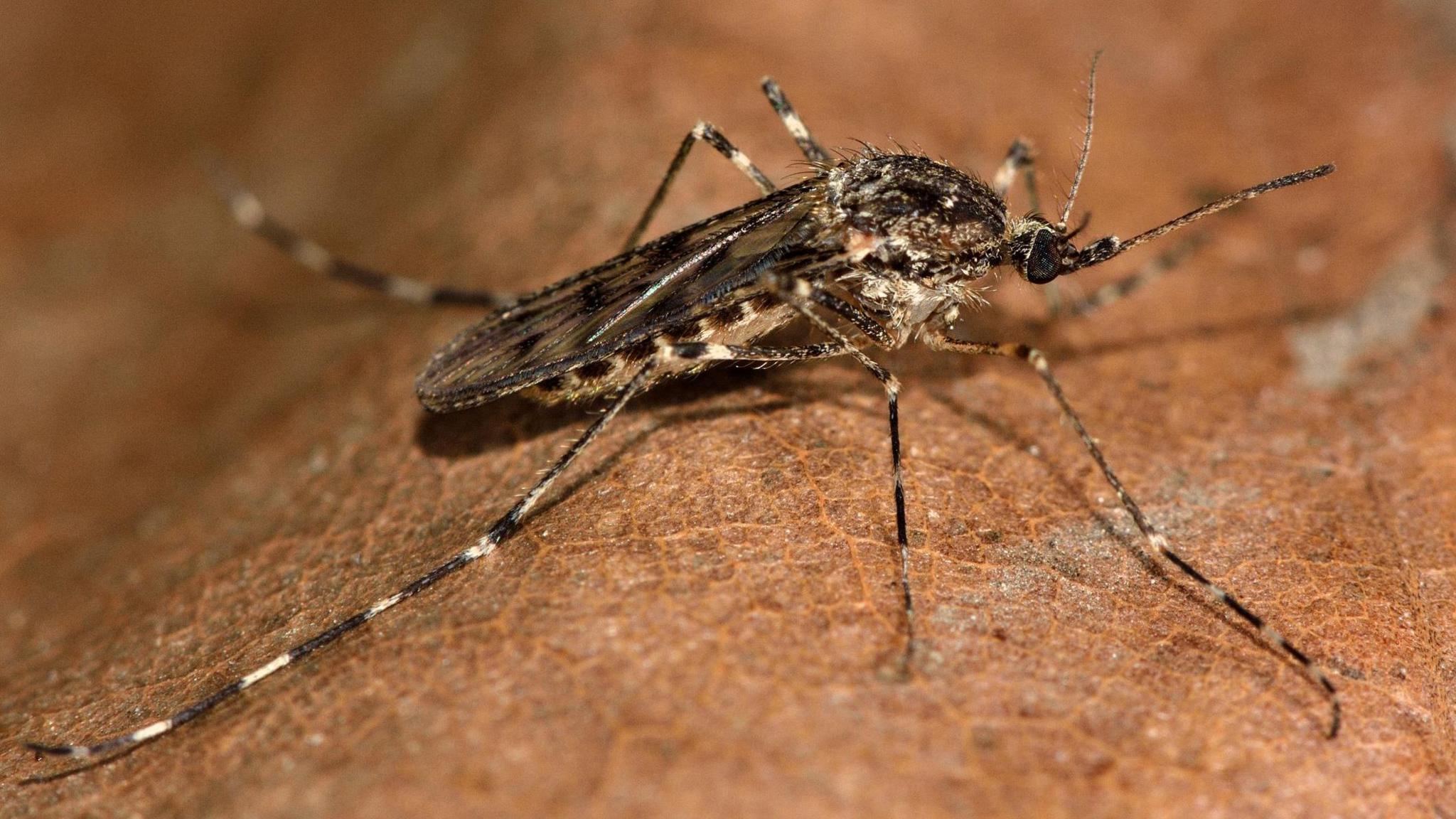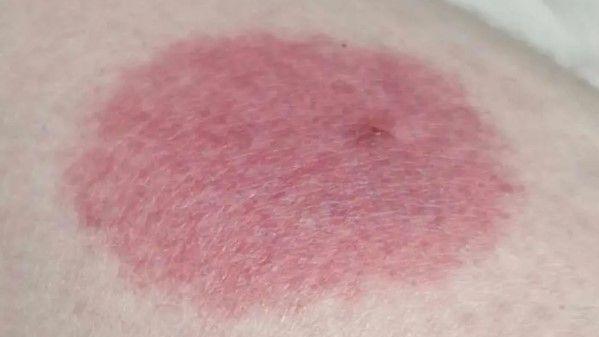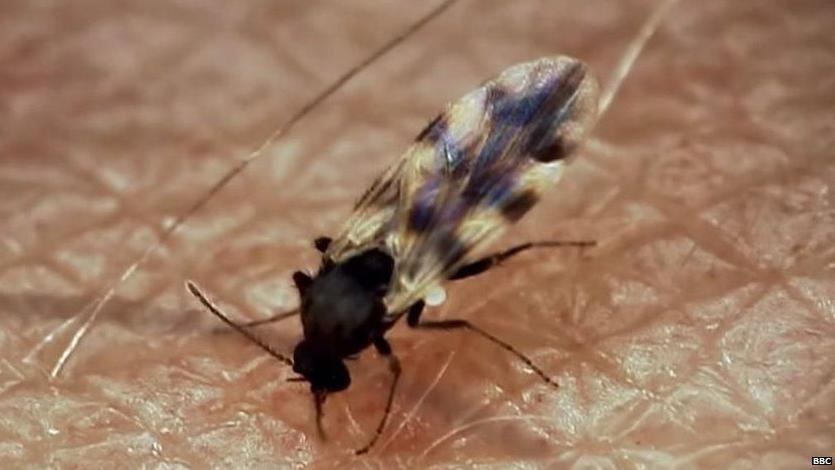Mosquitoes 'likely' behind biting spree, says council

An entomologist who liaised with the council over a spike in insect bites in Ballykelly believes they are being caused by banded mosquitoes, Culiseta annulata
- Published
Mosquitoes are likely behind a sharp rise in insect bites in the Ballykelly area, council investigators have said.
Hundreds of people in the County Londonderry village have complained about being bitten by insects, leaving them with large itchy red spots and rashes.
Causeway Coast and Glens Borough Council began an investigation earlier this week following a spike in the number of people reporting being bitten in the area.
In a statement issued on Wednesday, the council said following an initial investigation, it is believed the bites are caused by mosquitoes, which they said are "a type common to the UK that are not known to transmit disease".

Initial investigations indicate the insects are mosquitoes of a type common to the UK that are not known to transmit disease, the council say
The council stressed that mosquito bites can, however, cause skin reactions and "the irritation caused may result in secondary infection".
The council issued advice saying that bites can be prevented "by covering exposed skin when outdoors".
They also advised that insect repellent and citronella products can be an effective deterrent.
Council officers had previously said that it was unlikely that mosquitoes were behind the bites as they go into hibernation in the winter.
The council said officers engaged with members of the public who lodged complaints with the environmental health department.
The local authority had consulted an entomologist, who conducted a preliminary identification of the biting insects based on photographs.
A spokesperson said the the council was also in the process of receiving samples for testing.

The bites leave a red itchy rash or spot, some residents in Ballykelly say
Entomologist Paul Moore told BBC News NI that he has been working with the council in relation to insect bites in Ballykelly.
Mr Moore, who is vastly experienced in the study of insects, said that after reviewing some pictures of specimens taken from the area, he believed these could potentially be banded mosquitoes, known as Culiseta annulata.
This species is one of the largest mosquitoes and can be found in many areas across the United Kingdom and Ireland.
"When trying to identify an insect it is very hard to go just off the bites themselves - you really need to collect specimens from the area when dealing with something like this," he explained.
He said these mosquitoes do hibernate and that is why they may have initially been dismissed as a potential culprit.
But he added that when it gets warmer, they can come out of hibernation when feeling “a bit peckish” and can be active at any time of year, even during milder periods in winter.
He said they are mainly active from Spring until late Autumn before hibernating, where they are even known to be found in some roof spaces.
Mr Moore said these mosquitoes have a nasty bite and advised against scratching them.

Entomologist Paul Moore has been working with the council in relation to insect bites in Ballykelly.
Clare Smyth, who lives in Ballykelly, told BBC Radio Foyle's North West Today programme the bites had been "particularly bad over the past five years".
"Things have got worse," she added.
"We all get bitten but my eldest daughter Kaleea would get it the worst and her spots would swell up to the size of closed fist.
"She had to go to doctors after getting 15 mosquito bites and was on medication."
Ms Smyth described the bites as "an intense nip" followed by "a severe itch".
"It destroys your valuable time in the garden and it was particularly bad in the summer months," she said.
'Absolutely horrendous'
Laura Kyle moved to Ballykelly six years ago but said insect bites became more apparent in the past few years.
"It's absolutely horrendous," she said.
"I can't even walk to the car at times without having the bug spray.
"My legs swell out really bad. It makes my life a misery in the summer.
"My husband can't even go out to cut the grass and my children get targeted, too. It's awful."
The Public Health Agency (PHA) said insect bites or stings were not usually serious and get better in a few days.
However, a spokesperson added that sometimes bites or strings can become infected or cause an allergic reaction or illness.
"If bitten you can often treat an insect bite or sting without seeing a GP," the spokesperson said.
"A pharmacist can advise you about medicines that can help ease the symptoms of a bite or sting, such as antihistamines, steroid cream or painkillers."
- Published22 October 2024
